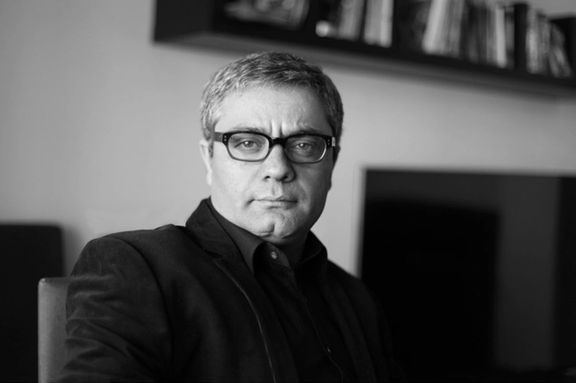End Of Jail Not Beginning Of Freedom: Dissident Iranian Filmmaker

Renowned filmmaker Mohammad Rasoulof who was told not to return to prison from his medical furlough says the end of imprisonment is not the beginning of freedom.

Renowned filmmaker Mohammad Rasoulof who was told not to return to prison from his medical furlough says the end of imprisonment is not the beginning of freedom.
Rasoulof who has been in and out of prison several times in the past few years for his works, was told not to return to prison, apparently as part of a partial amnesty announced earlier this month.
Rasoulof, winner of many prestigious film awards, said in an Instagram post Monday announced his release. “The end of imprisonment is not the beginning of freedom,” he wrote while wishing freedom for many other prisoners of conscience still remaining behind bars.
Several hundred prisoners including protesters, political prisoners and prisoners of conscience, and journalists have been freed since the announcement of Khamenei’s amnesty that authorities said would apply to “tens of thousands of prisoners”. Some of these had nearly served their whole sentence.
Judiciary authorities said that the amnesty would apply to those who “repented” from their supposed crimes and pledged not to repeat the offences.
Some of the those released from prison since then, including Zahra Kashkaki, a student at Tarbiyat Modarres University in Tehran who was arrested for protesting, say they had to sign a pledge. “I signed it. I hate myself,” she tweeted.
Apparently, many others have neither sought to benefit from the amnesty nor signed anything but were freed. Some including activist and Kurdish language teacher Zara Mohammadi even say they were hastily “kicked out” without them, their families, or their lawyers having asked for their freedom.
Human rights organizations, activists and lawyers have criticized Khamenei’s partial amnesty for protesters as a mere attempt at rescuing the image of the regime rather than a real step towards recognition of social and political freedoms and an end to repression.
“The mass amnesty of the prisoners of the Woman, Life, Freedom revolutionary movement on the condition of repenting indicates the continuance of Khamenei’s domineering mentality. It’s an endeavor condemned to defeat for mending his broken authority and fallen image,” US-based activist Ali Afshari tweeted while opining that it could also be a
security measure to prevent possible unrest in prisons where political prisoners are held.
“Amnesty? Detained protesters have done nothing wrong to be pardoned by Khamenei. It is Khamenei and the regime suppressers who must seek the forgiveness of political prisoners, those harmed and the families of those killed in the Woman, Life, Freedom movement protests,” journalist Morteza Kazemian tweeted after the announcement of Khamenei’s amnesty.
Rasoulof who is a Berlin Golden Bear winner, and his colleague Mostafa Al-e Ahmad were arrested in July 2022 after signing an appeal along with tens of other filmmakers and film industry workers. The appeal called on security forces to “lay down” their weapons and urging them to stop suppression of protests in Khuzestan Province fueled by the collapse of a newly built multi-story building in Abadan that killed over forty people.
After the execution of Mohsen Shekari, one of the four protesters the regime has hanged in the past five months, Rasoulof and other political prisoners issued a statement in which they said the execution was proof of the regime’s “desperation” and would only serve greater solidarity among the protesters.